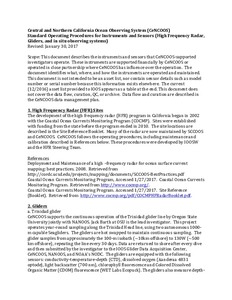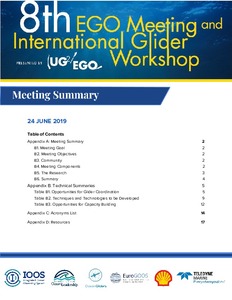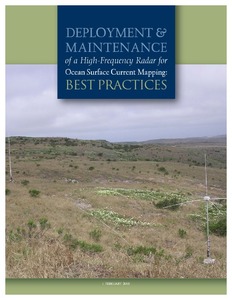Search
Now showing items 1-3 of 3
Central and Northern California Ocean Observing System (CeNCOOS) Standard Operating Procedures for Instruments and Sensors (High Frequency Radar, Gliders, and in situ observing systems). Revised: January 30, 2017.
(Central and Northern California Ocean Observing System (CeNCOOS), Moss Landing, CA, 2017)
This document describes the instruments and sensors that CeNCOOS-supported
investigators operate. These instruments are supported financially by CeNCOOS or
operated in close partnership where CeNCOOS has influence o ...
8th EGO Meeting & International Glider Workshop Meeting Summary.
(U.S. Integrated Ocean Observing System, Siver Spring, MD, 2019)
The goal of the 8th EGO Meeting and International Glider Workshop, held May 21-23, 2019, was to strengthen international collaboration through community dialogue, exchanges of information, sharing of experiences, and ...
Deployment and Maintenance of a High-frequency Radar (HFR) for Ocean Surface Current Mapping: Best Practices.
(University of California San Diego, Scripps Institution of Oceanography for SCCOOS, La Jolla, CA, 2008)
The use of HF radar for the collection of ocean surface current information in near-real time is quickly expanding. As this national radar network grows and matures, there will be a need for a defined set of best practices ...
 Repository of community practices in Ocean Research, Applications and Data/Information Management
Repository of community practices in Ocean Research, Applications and Data/Information Management


